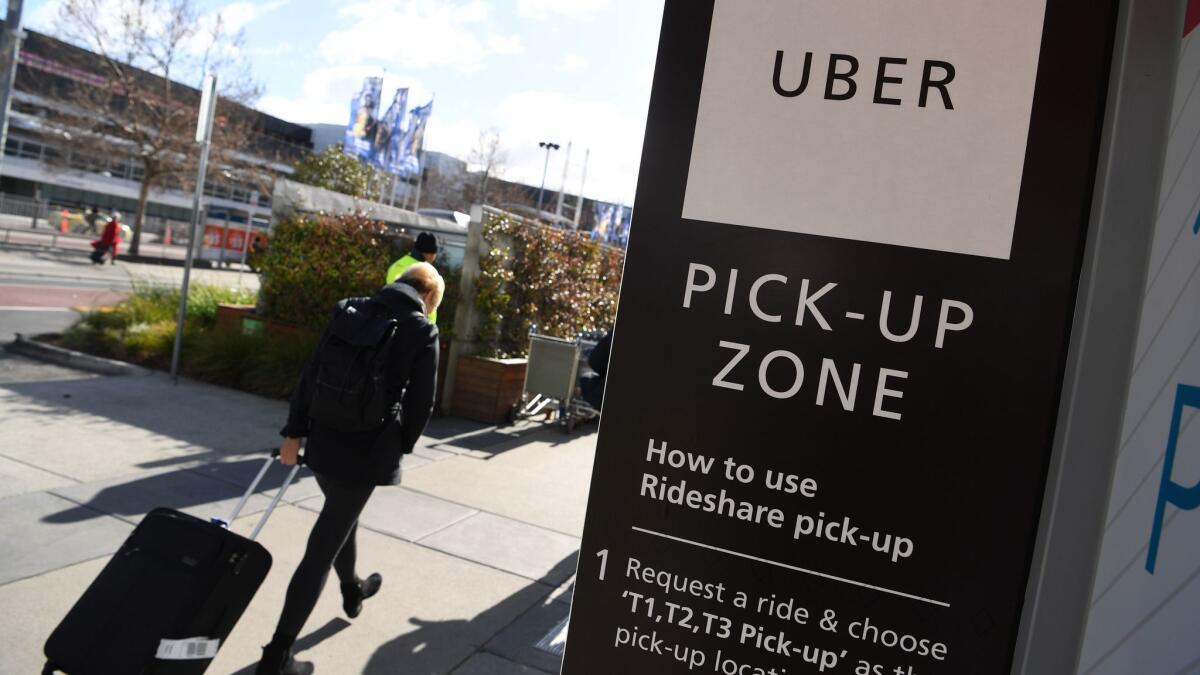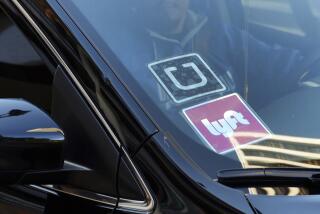Uber investors reportedly agree to sell to SoftBank at steep discount

Uber shareholders are said to have agreed to sell a sizable stake in the ride-hailing giant to an investor group led by SoftBank Group Corp., allowing the Japanese conglomerate to amass a piece of the company at a steep discount compared with the last valuation.
The transaction implies a $48-billion value for Uber, according to a person familiar with the deal. The investor group — which includes SoftBank, Dragoneer Investment Group, TPG, Tencent Holdings Ltd. and Sequoia Capital — also will put at least an additional $1 billion directly into the San Francisco company at a higher valuation of $69 billion, according to the person, who asked not to be named because the transaction isn’t yet complete. The Wall Street Journal earlier reported the share sale.
The deal will make SoftBank one of Uber’s largest shareholders and comes with two board seats. It will also put in motion a slate of governance reforms that were dependent on the deal going through, which will expand the board to 17 and revoke outsize voting power given to early backers. Benchmark, Uber’s largest venture capital backer, also will drop a legal case it’s pursuing in arbitration against Travis Kalanick, Uber’s co-founder and former chief executive.
SoftBank had been seeking a stake of at least 14% in the deal. The Journal reported at least 20% of Uber’s shares had been tendered.
Dara Khosrowshahi has been a champion of SoftBank’s proposal since becoming Uber CEO in September. In addition to the governance reforms, he’s looking to appease early employees and investors who don’t want to hold on to their shares until 2019, when Uber is expected to conduct an initial public offering. The SoftBank deal also would provide some additional capital to beat back rivals, which have gained steam after a succession of setbacks for Uber.
This year, Uber faced a politically motivated boycott, employee allegations of sexism, a high-profile lawsuit over trade-secrets theft, a video showing Kalanick berating an Uber driver and questions about Kalanick’s business tactics. The unwanted attention has brought intense government scrutiny. The U.S. Justice Department was exploring at least five criminal investigations in recent months, and London moved to ban the service.
Khosrowshahi is looking to quickly move past a disastrous 2017. He replaced the company’s legal chief, ousted the head of security who oversaw some of the most controversial projects, and hired the former CEO of Orbitz to run operations. However, ghosts of Uber’s past continue to emerge. In November, Bloomberg reported on a hack from a year earlier that exposed data on 57 million people and that Uber paid a ransom to keep the breach quiet.
For SoftBank, the deal will make founder Masayoshi Son an influential investor across the ride-hailing sector. He will hold stakes in five of the world’s biggest start-ups, including the market leaders in China, India, Southeast Asia, Brazil and the U.S.
Didi Chuxing, the main ride-hailing option in China, recently said it raised another round of financing from SoftBank, this time topping $4 billion. Before that, SoftBank had a $5.5-billion investment in the company.
SoftBank-backed start-ups compete with one another in several key markets. Son may use his influence to encourage mergers among the competitors in certain countries.
Newcomer and Alpeyev write for Bloomberg.






